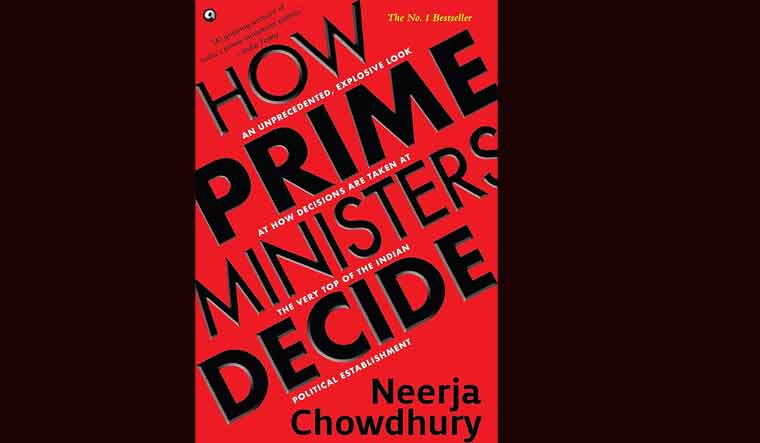India’s political history can be decoded through the stories of its prime ministers. Their decisions changed the course of our history. Even their indecision, too. Not all decisions were prompted by the reasons they gave out in the public.
Senior journalist Neerja Chowdhury’s book, How Prime Ministers Decide, provides an interesting account of the tenures of the six prime ministers starting with Indira Gandhi. Packed with anecdotes, insights, revealing details, and interviews with primary sources, the book reveals behind the scene activities which influenced the manner in which prime ministers decided on some of the pressing issues of the times.
The author also picked up former prime ministers Rajiv Gandhi, V.P. Singh, P.V. Narasimha Rao, Atal Bihari Vajapyee and Manmohan Singh to chalk out their personal profiles, their strategies, pressures, personal struggles and short term political gains which influenced their actions.
Before Narendra Modi came on to the scene, the current generation had little experience of powerful PMs who were elected with big mandates. Three decades back, Indira Gandhi ruled with decisive authority. She was routed in the polls held after she lifted Emergency. However, her comeback is a tale of political acumen and deft manoeuvring, which holds lessons for the political class.
The book says Indira had thought of retiring to the mountains after the stunning setback of losing her own constituency, Raebareli. A few years before that, she was hailed as Durga after the 1971 war when Bangladesh was created. But when the Janata Party government decided to go after her son Sanjay Gandhi, she decided to fight back. There began a counteroffensive. While out of power, She met her most fierce opponents, Jai Prakash Narayan and Raj Narain, which led to the latter to tone down their criticism. There are no permanent enemies in politics. In 2019, when the Congress aligned with Shiv Sena, they must have been reminded of Bal Thackeray’s support for Indira.
The chapter on Rajiv Gandhi takes the reader through the era when “waffling” over Shah Bano and opening the locks of Babri Masjid with an intent to please the faithful in both religions had an opposite impact. The chapter on VP Singh’s Mandal gambit brings to life the machinations during the Janata era which was to change the country’s politics forever. The Mandir politics was also gaining traction during the time.
The minute details of the P.V. Narasimha Rao tenure especially during the demolition of the Babri Masjid makes for an engrossing read. The chapters on Vajpayee and Narasimha Rao provide clues to their soft corner for each other and mutual respect. They helped each other during the crisis. Rao had briefed Vajpayee on his nuclear programme and asked him to go for the test which the latter eventually did and also ensured his place in the history books.
The author who had spent four decades in covering various prime ministers and politics says she finds incumbent Prime Minister Modi’s decision-making style totally different from his predecessors. As Modi’s tenure is still in progress, people close to him may still be shy of speaking up so the actual details of key decisions may take a few more years. Some estimates put that nearly 500 books have already been written on Modi. Many more will be needed in future to lift the veil off some of the key decisions of his tenure.
The racy and crisp writing style makes the book immensely readable. The fascinating stories throw light on the political environment of the time and will take the readers on an engrossing journey. Chowdhury’s book is a valuable addition to the literature on our former prime ministers and their contribution.
How Prime Ministers Decide
by Neerja Chowdhury
Publisher: Aleph
Price: Rs 999; 578 pages



